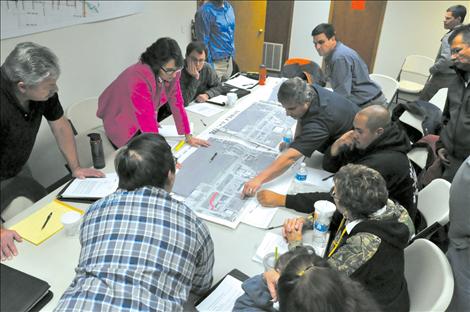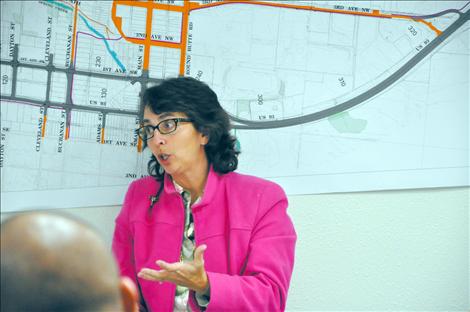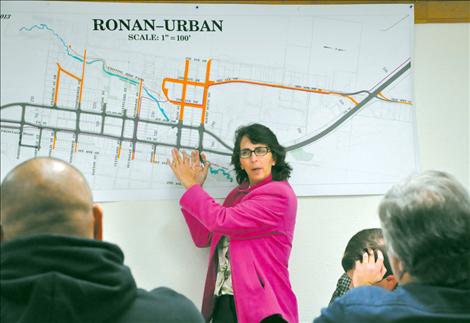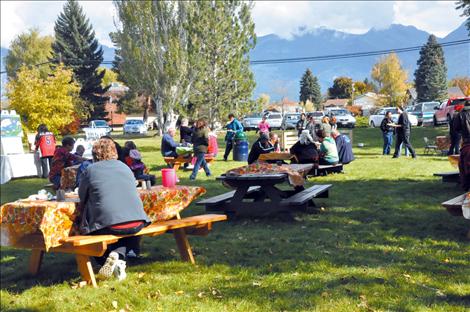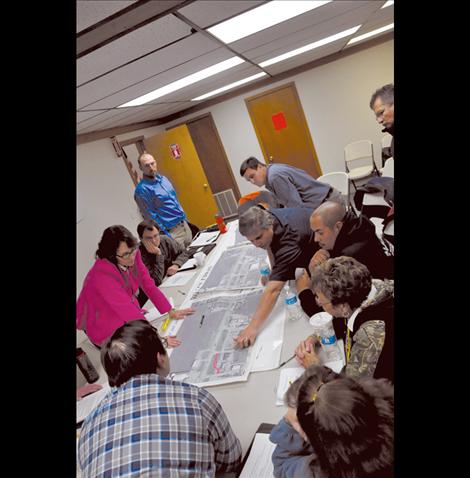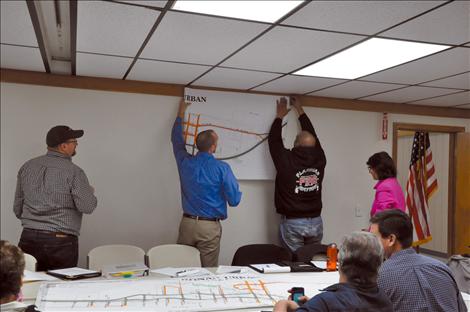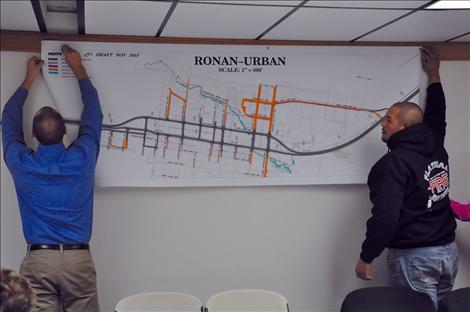Highway 93 corridor through Ronan needs resolution
Hey savvy news reader! Thanks for choosing local.
You are now reading
2 of 3 free articles.
RONAN – Significant changes were made to the Highway 93 corridor expansion plan for Ronan in a Nov. 6 meeting between the city council and state and federal highway officials. But a dispute over the impact to Bockman Park halted negotiations that must be resolved if the $40 million project is to be completed.
The project will expand Highway 93 into four lanes. A northbound couplet will follow the path of the current roadway, while a southbound couplet will occupy space that rests along First Avenue. The project planning has been underway since 1982, according to Mayor Kim Aipperspach. The project faced a year-long delay and more than 200 right of way negotiations have not been completed, in part, because final stages of design have not been approved by the Ronan City Council. The city has to provide a letter approving the project, officially called a “letter of de minimus” for the project to proceed.
Time for changes to the new highway’s design is running out, Montana Transportation Commission Chairman Kevin Howlett said.
“We do planning five years out,” Howlett said. “This is scheduled for 2018. Many, many unresolved issues (remain), including 200 issues related to right of way. If we can’t come to some agreement on this, there’s a very real likelihood that the 93 corridor is not done … As we do our planning, I’m not going to let $40 million from this district go uncommitted. It’s going to go to a project in this district.”
Ronan public works director Dan Miller said the city was not intentionally causing a delay.
“The city does not want to hold anything up, we just don’t want to be brushed over,” Miller said. Aipperspach added that he wanted to get what was best for Ronan out of the project.
The city and officials agreed to re-route a bike path originally designed to go through the middle of town until it reached the north side of the city park. Under new plans, the path will follow the outside of the future northbound couplet. A trail will link the south side of Bockman Park’s trail system and the new bike path. Officials suggested the city apply for a grant that will allow them to build the originally planned bike path at a later date. Miller was not optimistic the city will receive a grant.
The city also agreed to the elimination of a frontage road. Creating the road would have required the acquisition of McDonald’s, which would cost millions more dollars than the property is worth. Kathy Harris of KLJ, the engineering firm designing the project, said the firm would work to design an alternative that will give locals easy access to both sides of town.
Negotiations halted when state and federal officials said they could not meet the city’s requests to replace parking lots adjacent to Bockman Park due to federal regulation. The city claimed that the new highway will run adjacent to the park, eat up its parking spaces, and change use patterns. The city asked that the project provide additional parking for the park and restrooms. Replacing park land with parking is not permitted, officials argued. Park board chairman Tom McDonald said he would provide examples of where federal funding has previously been used in the same way.
McDonald said the city would not release a letter of de minimus unless the parking could be mitigated.
If the city does approve the project, it will be required to shoulder a $200,000 to $300,000 cost of relocating utilities currently underground beneath First Avenue. Harris said state law prohibits the Department of Transportation from fully rebuilding existing utilities. The estimated cost to the city is 15 percent of the multi-million dollar total cost of replacing the utilities.
“To come in and sit down and say ‘you’re going to have to replace all this and here’s your cost and, oh, we’re going to need that up front, too,’ that didn’t sit very well,” Miller said.
Officials said they tried to get around the law, but couldn’t.
Miller said the city was unlikely to receive a grant to cover the cost.
“Grants are going to go to people who are having problems with safe drinking water and sewer,” Miller said.
Luckily, the federal funds will pay for the diversion of Spring Creek, which will flow under Main Street.
“We’ll have to rip up Main Street to put a big box culvert in,” Harris said.
The city and state officials said they would continue to cooperate so the project could proceed on schedule.















